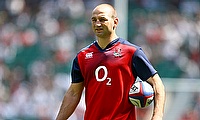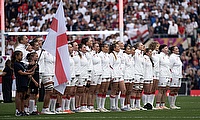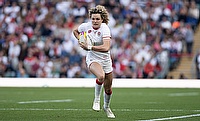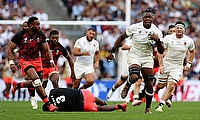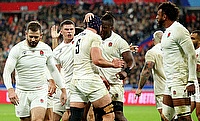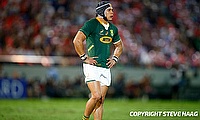England's opensides are not to Eddie's liking
Is there anything quite so debatable in world rugby?
Historically, it’s a position where England have been spoiled for talent but the more recently you look, the more the position has caused problems.
At the beginning of the professional era, Neil Back donned the jersey superbly, forming part of a back row which would go on to become the best in English rugby history, if not world rugby history.
He was the perfect fetcher on the ground and link man with ball in hand to complement the talents of his loose forward colleagues, Lawrence Dallaglio and Richard Hill.
Lewis Moody took on the mantle after Back and did a fine job himself, albeit in an England team which was a shadow of the side that won the Rugby World Cup in 2003. Moody was entirely fitting of his nickname – Mad Dog – and put himself about on a rugby pitch with an abandon that was a mixture of awe-inspiring and concerning.
After Moody, the train began to come off the tracks, however.
Tom Rees was all set to be the next star of English rugby, the great challenger to Richie McCaw and a future England captain that should have gone on to win 80, 90 or even 100 caps wearing the Red Rose.
Cruelly, injuries intervened and denied Rees the career he should have had. He was technically unmatched at the breakdown in the Premiership and it was his work on the deck that was the driving force behind Wasps’ last domestic and European titles.
The likes of Magnus Lund, Michael Lipman, Andy Hazell and Steffon Armitage were all subsequently tried but for whatever reasons, didn’t work out.
Then came the era of the so-called ‘6.5’, with Chris Robshaw, Tom Wood and James Haskell all trying their hand at the position and enjoying a reasonable level of success, but never quite winning over the fans, who drooled over traditional fetchers like McCaw and David Pocock, Michael Hooper and Sam Warburton.
Now, England coach Eddie Jones is without his favoured openside – Haskell – due to injury and it has prompted the Australian to state that English rugby doesn’t have the traditional type of seven in its armoury. Instead, Jones will opt for “destructive defensive player” on the openside, something which had opened the door for the uncapped duo of Sam Jones and Mike Williams.
Unfortunately, injury has ruled out Jones, whilst Williams is also facing fitness struggles of his own and there is no certainty he will be ready to take on South Africa, either.
Enter stage right, a temporary position switch for England’s swiss army knife, Maro Itoje.
That may well be the right call for the upcoming Test window and few can argue that Jones or Williams didn’t deserve their call-ups prior to injury, but it is a fairly substantial slap in the face to the likes of Matt Kvesic, Luke Wallace and Will Fraser.
Knowing the Australian, it is either a tactic designed to get the best out of those players or that their faces simply don’t fit in the picture that Jones is trying to paint.
When he says there are no traditional sevens in English rugby, what goes unsaid is that he clearly believes Leicester’s Will Evans has the capability to become one. Jones had tape of Evans’ training sessions sent to him last season and identified the then-18-year-old as a potential future contributor.
Now 19 years of age and having starred as part of England’s World Rugby U20 Championship-winning side earlier this year, Evans is a part of the Jones’ Elite Player Squad, albeit not included in the 37-man training squad for the upcoming internationals. It’s clearly a learning experience for Evans and Jones wants to make sure the youngster continues to develop and will get to keep a close eye on him in the EPS.
As for Kvesic, Wallace and Fraser, they may have to deal with the frustrating fact that Jones may just not be a fan. All three were excellent in the Premiership last season and Kvesic even took that form to South Africa with the Saxons and shone at a higher level.
England’s player pool is substantial, both in terms of quality and quantity, and the reality is that good players will always miss out, but that doesn’t mean that Jones’ recent barb won’t have stung these three flankers.

